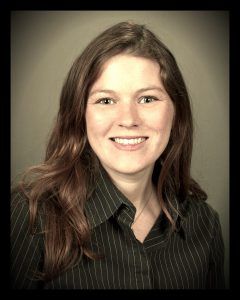FAST funds 3rd Postdoctoral Fellowship Grant
The path to running a research group is a long one. Scientists are first trained in graduate school to obtain a doctorate degree in their chosen field. In the US this can typically take four to seven years. After graduation, scientists typically do an additional three to six years of training beyond their graduate work, called a “postdoc,” to expand their skills. Most often, the work conducted during the postdoctoral training time determines the work that scientist will focus on in their own research group. To be competitive for a position running a research group, the postdoctoral researcher must focus intensely on their project and produce publishable results. To help increase the number of talented and dedicated researchers focusing on Angelman Syndrome research in their careers, FAST is providing fellowship awards that will cover the salary and experimental costs associated with postdoctoral research. These fellowships also provide travel funds to allow the fellows to attend scientific meetings to present their work and learn about recent advances in the field. Researchers who obtain one of these fellowships can focus exclusively on their work and not spend time they could be using for research on writing grants to obtain funding. This will allow these researchers to get a jump on the competition and make them more competitive for research positions in the next few years.
In January of 2012, FAST awarded our third postdoctoral fellowship to Dr. Sarah Black at the University of Texas A&M. Our scientific advisory board was impressed with the potential of her project to identify therapeutic targets that regulate paternal UBE3a expression and unanimously recommended funding. Please help us welcome our newest Angelman Syndrome researcher!
[caption id="attachment_159" align="alignright" width="240" caption="Dr Sarah Black"] [/caption]
Sarah G. Black, Ph.D.
Texas A&M University
Mentor: Dr. Scott Dindot
Title: Epigenetic repression of the paternal Ube3a allele in neurons
[/caption]
Sarah G. Black, Ph.D.
Texas A&M University
Mentor: Dr. Scott Dindot
Title: Epigenetic repression of the paternal Ube3a allele in neurons
 [/caption]
[/caption]
 [/caption]
Sarah G. Black, Ph.D.
Texas A&M University
Mentor: Dr. Scott Dindot
Title: Epigenetic repression of the paternal Ube3a allele in neurons
[/caption]
Sarah G. Black, Ph.D.
Texas A&M University
Mentor: Dr. Scott Dindot
Title: Epigenetic repression of the paternal Ube3a allele in neurons
- Where did you do your graduate training and what did you work on? I received my PhD in genetics from Texas A&M University in 2010, under the mentorship of Tom Spencer. My thesis involved understanding the role of endogenous retroviruses in placental and fetal development. My project demonstrated that retroviral sequences are involved in the establishment of pregnancy.
- What interests you about research on Angelman Syndrome? I am intrigued by the many unanswered questions regarding the genetic and epigenetic regulation of the Ube3a gene in the brain. While there has been great progress made in Angelman Syndrome research, the mechanisms regulating genomic imprinting of Ube3a in the brain are still not understood. With this fellowship, I hope to better understand the factors involved in repressing the paternal Ube3a allele in the brain. Results from this fellowship may lead to the identification of those factors. They may then be explored as therapeutic targets.
- How will this funding help you to focus on your research? I am very grateful to be awarded this postdoctoral fellowship by FAST. The funding from this fellowship will allow me to focus on my research in AS, without having to concentrate on grant writing or other projects. As a member of a lab driven by a young, promising principal investigator that is dedicated to studying Ube3a and AS, I will use this money to pursue more ambitious projects related to understanding the mechanisms of imprinting of Ube3a and finding therapeutic targets.
- How will your funded project help FAST advance towards potential therapeutics for Angelman Syndrome? The mechanisms regulating genomic imprinting of Ube3a remain poorly understood. My project will utilize RNA interference technology to identify epigenetic modifiers or other factors that initiate and/or maintain repression of the paternal Ube3a allele in neurons. Results from this study will provide valuable insight into the fundamental mechanisms regulating genomic imprinting of Ube3a in the brain and may provide the foundation for therapeutic strategies aimed at reactivating the paternal UBE3A allele in AS patients.
 [/caption]
[/caption]